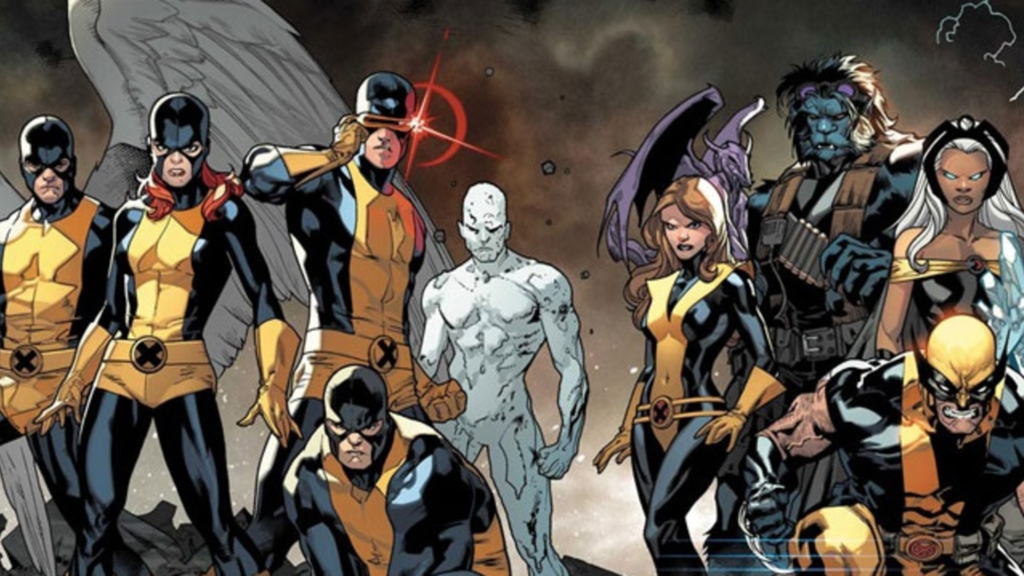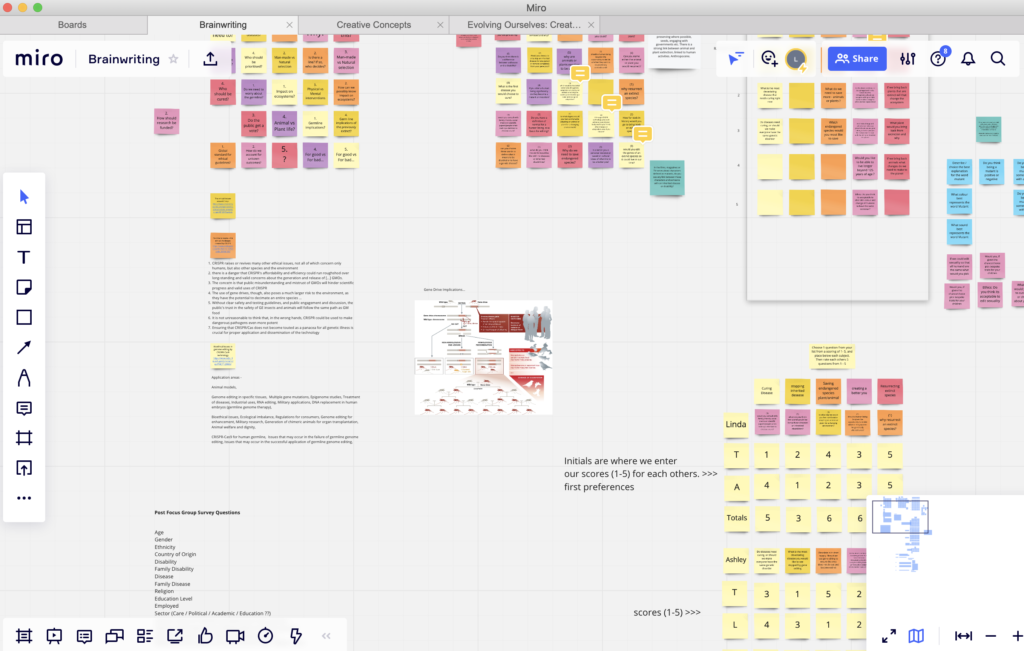Residency Reflections
As we find ourselves deep into August, it’s the perfect moment to look back and reflect on the first week of our two-year artist residency with the SETI Institute in California. This journey, which began on the 15th of July, has already proven to be as challenging as it is rewarding. Our collective, Non Random, is excited to engage with an extraordinary community of scientists and researchers, pushing the boundaries of art, science, and what it means to explore the unknown.
Our residency commenced with a series of workshops that drew inspiration from our previous project, Evolving Ourselves with Unnatural Selection, which culminated in the creation of the GAIA project [link]. GAIA was an exploration of the ethical implications of genetic editing for climate adaptation, offering an interactive and immersive art space that delved into questions of altering species—both human and non-human—for survival in extreme climates, resurrecting extinct species, and preparing life for the rigors of space travel.
At SETI, we’ve adapted these themes to spark dialogues among researchers who are investigating the possibility of intelligent life beyond Earth. Our discussions centered on how planets might endure extreme climate transformations and how life could exist in such conditions. These conversations are not just theoretical; they hold significant implications for understanding how Earth might survive a global climate shift.
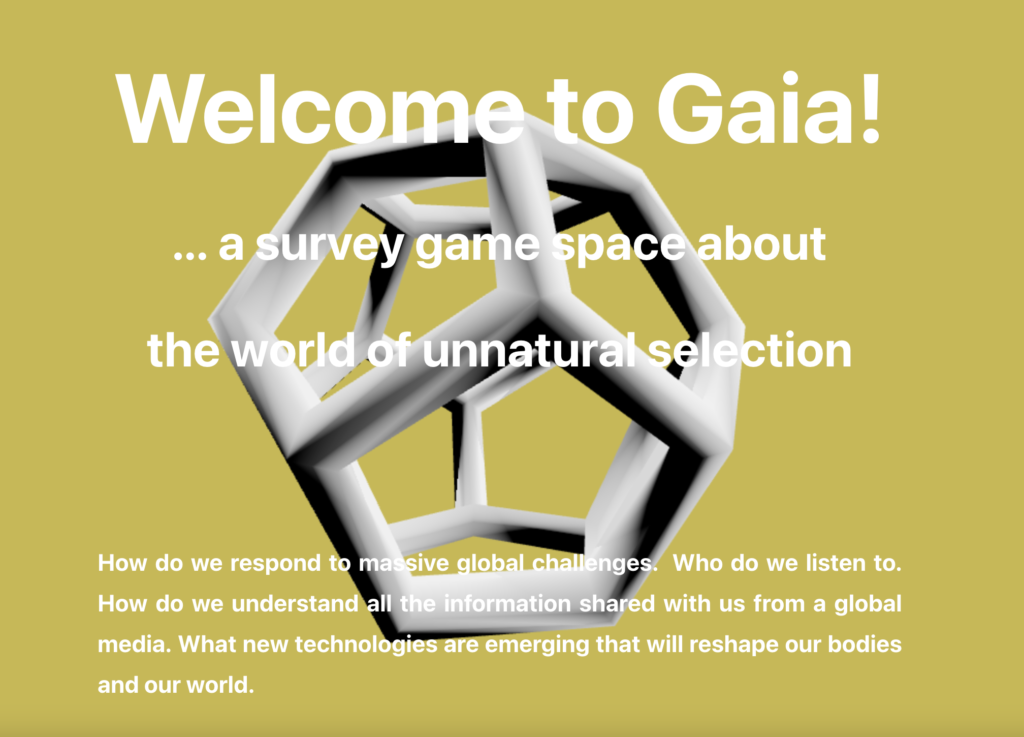
Reflecting on Week 1: Building Bridges Between Art and Science
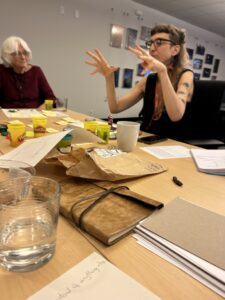

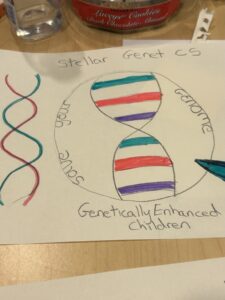
Looking back on that first week, we were immersed in a whirlwind of ideas and creativity. We explored the concept of what it means to be human and non-human, imagined the future museum of the 26th century, and engaged in making art that responded to the vast array of ideas that emerged. It was a privilege to witness the creation of beautiful drawings and small sculptural forms, crafted from Play-Doh, that encapsulated the participants’ thoughts and visions.
Our participants included astronomers, biologists, ecologists, and artists, each bringing their unique perspective to the table. The discussions ranged from politics and war to climate change and planetary research, resulting in an incredibly interdisciplinary conversation. This convergence of disciplines brought about some profound insights, yet also highlighted the challenges of such collaborations.
One of the recurring questions was the role of the arts in interdisciplinary research. How does data from arts-led research serve science? Why don’t artists have conclusive answers about the purpose of their collaborations from the outset? These questions underscore the tensions that often arise between the arts and sciences. However, we believe that these tensions are not only necessary but productive. They push us to think deeper, to challenge our assumptions, and to engage in more meaningful dialogues.
For Non Random, this first week has reaffirmed the importance of continuing these collaborations. If we are to tackle the biggest challenges of our time, we must continue to bridge the gaps between the arts, humanities, social sciences, and physical sciences.
Exploring the Frontiers of Knowledge
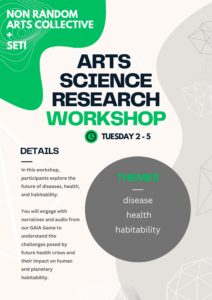
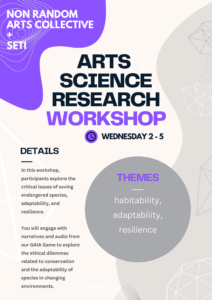
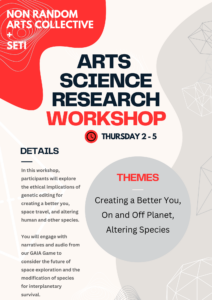
To give you a glimpse into the scope of our workshops, here are the themes we explored:
In this workshop, participants delved into the ethical implications of genetic editing for self-improvement, space travel, and altering species. Engaging with narratives and audio from our GAIA Game, we considered the future of space exploration and the modification of species for interplanetary survival.
This session focused on the future of diseases, health, and habitability. Participants explored the challenges posed by future health crises and their impact on human and planetary habitability, guided by the thought-provoking content from the GAIA Game.
In our final workshop of the week, we tackled the critical issues of saving endangered species, adaptability, and resilience. Through engaging with the GAIA Game, participants navigated the ethical dilemmas related to conservation and the adaptability of species in changing environments.
As we move forward in our residency with SETI, we are eager to continue these explorations, to challenge ideas, and to collaborate across disciplines. The future may be uncertain, but it is in these uncertainties that the most exciting possibilities lie.

